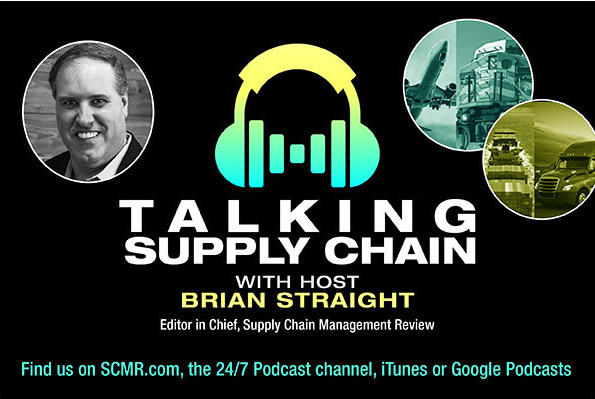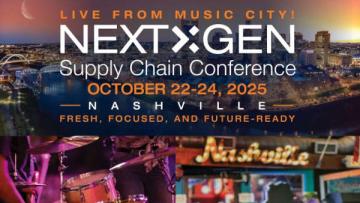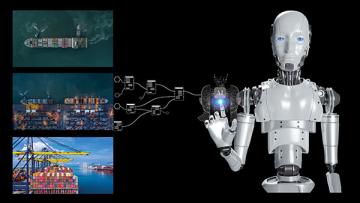Editor’s Note: The views and opinions expressed in this article are solely those of the author and do not reflect the views of Amazon or any of its affiliates.
When I left the Indian Navy after 10 years, I had no idea what “supply chain management” even meant. We never used terms like that. But somehow, I found myself leading a large team at a major online retailer just two years later—overseeing robotic fulfillment operations, chasing KPIs, and navigating the daily chaos of e-commerce.
This is a story for veterans who wonder, “Can I make it in the civilian world?” My answer: Yes. You probably already have what it takes—you just don’t call it by the same name.
From aircraft to acronyms
My career began in 2011 after completing an engineering degree in electronics. I joined the Indian Navy as a technical officer and later trained in aviation engineering. Over the years, I moved through roles in aircraft maintenance, readiness planning, and eventually led initiatives coordinating logistics and spares between the Navy and Indian defense suppliers.
At the time, I didn’t think of it as “supply chain.” It was just the mission—getting aircraft operational, troubleshooting bottlenecks, and leading teams under pressure. We dealt with complex asset management, long lead times, and the operational equivalent of last-mile delivery. We just didn’t have a dashboard to visualize it.
From the navy to East Lansing
After retiring in 2021, unsure of how my experience translated to civilian jobs, I enrolled in the MBA program at Michigan State University, focusing on supply chain management and finance. On day one, I heard “supply chain” mentioned again and again, and finally asked: “What actually is supply chain management?”
As my professor explained the end-to-end flow of goods, data and capital, I realized I had been doing this for years. That moment gave me confidence. My MBA helped me build fluency in the language of business, from inventory optimization to strategic sourcing. I interned at a global e-commerce company through their leadership program and joined full-time in 2023.
Different uniform, same leadership
Today, I oversee robotic fulfillment operations in a high-volume warehouse. Instead of aircraft readiness, I focus on order readiness. Instead of a runway, it’s a conveyor belt. But the core principles haven’t changed: leading cross-functional teams, making decisions under pressure, and driving throughput with limited resources.
Veterans bring something rare to corporate operations—real, tested leadership. Not just project plans or dashboards, but the ability to inspire trust during system outages or peak season chaos. We’ve already practiced lean thinking, root cause analysis, and daily stand-ups—just in a different context.
Adapting to civilian SCM
I won’t sugarcoat it—transitioning was hard. The corporate dialect was unfamiliar. During my MBA, I often wondered if recruiters truly understood military experience. But over time, with mentors and practice, I learned to translate—not just my resume, but my mindset.
If you’ve led sailors, maintained fleet assets, or orchestrated operational logistics, you’ve already handled supply chain problems. You just didn’t call it “SCM analytics” or “strategic procurement.” But you lived it.
Leadership translation: From ship deck to fulfillment floor
What changed for me wasn’t the essence of work—it was the framing. Military operations taught me to manage complexity with limited visibility, to act decisively, and to lead people first. The business world values those things too—but often labels them differently.
The more veterans we bring into supply chain roles, the more resilient our operations will be. Because in every fulfillment center, port, or planning hub, we need calm in chaos—and a commitment to the mission.
A note to fellow veterans
If you’re in uniform today and thinking about your next chapter, start asking questions now. Talk to others who’ve made the jump. Explore MBA programs, certifications, or veteran transition fellowships—but don’t underestimate what you already bring.
Start building your network. Get a mentor. And most importantly, believe your leadership translates. Because it does.
Our experience is not just relevant—it’s urgently needed. Your next mission may not involve salutes or ship decks, but it will need everything you’ve already practiced: trust, resilience, and team-first execution.
SC
MR


More Talent Management
What's Related in Talent Management

 Explore
Explore
Topics
Business Management News
- C.H. Robinson rolls out AI agent to address LTL classification overhaul
- Danone latest to announce new US investment
- From flight decks to fulfillment: A veteran’s supply chain journey
- Employee versus enterprise AI adoption
- Uber Freight’s Val Marchevsky to deliver Keynote at NextGen Supply Chain Conference
- Unlocking the green grid: Innovations for eco-friendly last mile
- More Business Management
Latest Business Management Resources

Subscribe

Supply Chain Management Review delivers the best industry content.

Editors’ Picks




